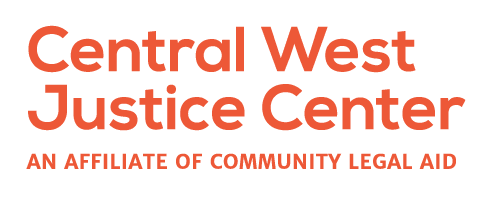
November 16, 2023
New funding from AG’s office will support legal aid for immigrants in Western Mass
BY WAMC Northeast Public Radio
As the state grapples with an at-capacity shelter system amid an influx of migrants, Massachusetts Attorney General Andrea Joy Campbell announced $780,000 in state funding for 13 nonprofits that offer legal support to immigrants. A part of the Democrat’s Immigrant Legal Services Grant Program, Campbell says it’s aimed at bolstering aid to legally settled new arrivals to Massachusetts. One of the nonprofits who received an allocation is Community Legal Aid, which provides free legal services to low-income and elderly residents in Central and Western Massachusetts. It is sending the money to subsidiary organization Central West Justice Center. WAMC spoke with Director Kristen Williams about how the organization intends to use the new influx of state funding.
WILLIAMS: We’re going to be able to hire a paralegal who is going to coordinate legal clinics throughout our service area to help with immigration legal issues for new arrivals in our service area. And so those legal clinics will- They serve as kind of like consults initially. If there is any further legal work to do outside of the consult or outside of whatever we’re able to do during that consultation, then we can also bring those cases back to our organization and handle them on a full rep basis. But in the past, when we’ve done legal clinics with new arrivals specifically, recently, we’ve been able to file work permits for them, and some of them have, at this point, already gotten their work permit, which is exciting. So, I think that’s probably going to be a big part of what happens at these legal clinics, is that we’re able to get work permits filed for individuals.
WAMC: Can you explain how important this is as far as the immigrant experience to have this kind of legal backing as folks are trying to navigate an entirely new country?
It’s incredibly important. As you know, a lot of new arrivals, they do not speak the language, they may have arrived at a border that is not here, right? And they wound up in Massachusetts. They may have paperwork that is requiring them to show up in some sort of a hearing or some sort of court in a different location in the next several weeks, several months, and they don’t understand or know that that is supposed to happen. So, helping them navigate what paperwork they have, what they’re entitled to in terms of, if they’re entitled to a work permit or allowed to apply for a work permit at this point, if they’re able to apply for benefits that, things like food stamps, if they’re able to apply for health insurance and that type of stuff is just really helping them navigate the system and figure out what exactly it is that they need, and what exactly it is that they can do now that they’re here.
We’re hearing a lot right now about a large influx of migrants and immigrants to Massachusetts. From the center’s perspective, is this a moment that is historically significant as far as the folks that you serve and work with coming into this region?
What I would say to that is that having individuals, both new arrivals and individuals who have been in our service area for a long time, that’s not new. And so, while there may be a new influx of new arrivals to Massachusetts, there’s always been this legal need for, particularly, immigration legal assistance for these individuals. And so, the need of legal assistance for these individuals has always outpaced the amount of support that organizations like ourselves are able to give. And so, we are always looking for more ways to help these individuals, and give them the assistance that they need.
The center also talks about doing work at shelter sites with immigrants who are staying in the shelter system. Can you tell us more about what those visits are like and how this grant will support that work?
So, kind of similar to what I was talking about before, we have gone to different shelter sites throughout our service area, particularly those where we know there’s a large population of new arrivals, and like I said, gotten to their documents as well as primarily help them file applications for employment authorization. So that’s been the big thing that we’ve been able to do, but also just giving them that comfort and support of understanding what paperwork they have and what that paperwork means.
